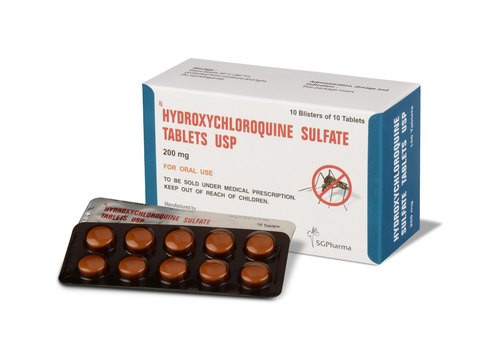By SAT News Desk/WHO
MELBOURNE, 27 MAY 2020: The World Health Organisation (WHO) has temporarily stopped the trial of Hydroxychloroquine after safety concerns as a treatment for Coronavirus patients as a precaution while the safety data is being reviewed. The WHO released the following Q-A in this regard to the media on 26 May 2020:
Q&A : Hydroxychloroquine and COVID-19
Why was the use of hydroxychloroquine temporarily suspended in the Solidarity Trial?
In light of recent publications of evidence on the safety and efficacy of hydroxychloroquine as a treatment for COVID-19 patients, the Executive Group of the Solidarity Trial decided to implement a temporary pause of the hydroxychloroquine arm within the trial as a precaution while the safety data is being reviewed.
As an example, an observational study published in the Lancet on 22 May found that, among 100 000 patients from multiple countries randomized to receive hydroxychloroquine, when used alone or with a macrolide, there was a higher mortality rate and an increased frequency of irregular heartbeats.
A final decision on the harm, benefit or lack of benefit of hydroxychloroquine will be made once the evidence has been reviewed by the Data Safety Monitoring Board. This review will include data from the Solidarity Trial and other ongoing trials, as well as any evidence published so far. It is expected by mid-June.
What will happen to the people who are currently enrolled in the hydroxychloroquine arm of the trial?
Those patients previously randomized to hydroxychloroquine treatment should continue to receive hydroxychloroquine until they finish their course of treatment. The use of hydroxychloroquine and chloroquine are accepted as generally safe for use in patients with autoimmune diseases or malaria.
What is WHO’s view of ongoing prophylaxis treatments followed in some countries, which include the use of hydroxychloroquine?
WHO is currently assessing the use of hydroxychloroquine on COVID-19 patients within the Solidarity Trial. The hydroxychloroquine arm has been paused as a precaution while the safety data is being reviewed.
Every country, particularly those with regulatory authorities, is in a position to advise its citizens regarding the use of any drug. Although hydroxychloroquine and chloroquine are already licensed products for treating other diseases, at this stage, these drugs have not been found to be effective in the treatment of COVID-19. In fact, warnings have been issued by many national authorities on the side effects of the drugs and their use has been limited in many countries to clinical trials under strict supervision in hospital settings.
WHO has cautioned physicians against recommending or administering unproven treatments to COVID-19 patients, and cautioned people against self-medicating with them. The consensus among world experts is that the potential exists but that far more studies are urgently needed to determine if existing antiviral drugs can be effective to treat COVID-19. If these treatments prove to be effective, they could reduce the burden of COVID-19.
What is the Solidarity Trial?
The Solidarity Trial is an international clinical trial to help find an effective treatment for COVID-19, launched by WHO and partners. It is hoped that one or more of the treatments under trial will result in improving clinical outcomes in COVID-19 patients and save lives. Other trials are on-going around the world in addition to the Solidarity Trial.
Based on data from laboratory and clinical studies, Remdesivir, Lopinavir/Ritonavir, Lopinavir/Ritonavir with Interferon beta-1a, and hydroxychloroquine had been initially selected as treatment options. Following new evidence on the safety and efficacy of hydroxychloroquine as a treatment for hospitalized COVID-19 patients, enrollment for this drug was temporarily suspended on 24 May 2020.
Over 100 countries have expressed an interest in participating in the trial and WHO is actively supporting more than 60 of them, including with the following:
– ethical and regulatory approvals of the WHO core protocol;
– identification of hospitals participating in the trial;
– training of hospital clinicians on the web-based randomization and data system;
– shipping the trial drugs as requested by each participating country.
To date, over 400 hospitals in 35 countries are actively recruiting patients and nearly 3500 patients have been enrolled from 17 countries.
An interim trial analysis will be produced and will be monitored by an independent group of experts as the global Data and Safety Monitoring Committee.






